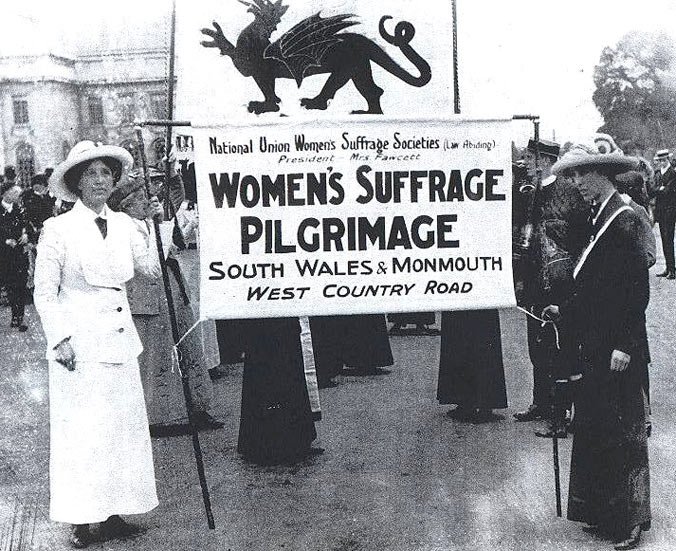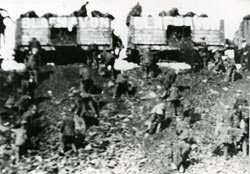Women were challenging Lloyd George on his home ground over his refusal to give them the right to vote. Helen Morgan from Abergavenny Local History Society reports
When the Liberals won a landslide victory in the General Election in 1906, they began a wide platform of social reforms including the introduction of national insurance and pensions for the over-70s. But hopes of universal suffrage were dashed time and again. By 1910, Gwenllian Morgan had become Wales’s first female mayor in Brecon. The right to stand for a seat in Westminster and the right to vote at all, however, were completely barred to women.
By 1912, after attempts to find a compromise to enfranchise even some women had failed, disillusionment with the Liberals including Lloyd George, was complete. Militants, who were no longer able to contain their frustration, went on the rampage. In Llandaff, one suffragette leapt out in front of Reginald McKenna, the Home Secretary and North Monmouthshire MP, who was accompanying the King and Queen on a visit to the cathedral.
Another, Margaret Haig Mackworth, from Llanwerth, who later became Lady Rhondda, broke every tabooo of her social class — joining protest marches and setting fire to a pillar box in Risca Road, Newport. She was sent to prison and went on hunger strike. In Abergavenny, Catherine Gatty from the Irish Women’s Franchise League was jailed too — for a month with hard labour for smashing a window in the Post Office in protest at being excluded from the Parliamentary election register.
It is said by some that the influence of the suffragettes inspired one widow to stand up to the Blaenavon Company after her husband John was killed at Big Pit in June 1912. Sarah faced a grim and uncertain future for the house in which she lived in Coed Cae with her two children, aged two and five, went with the job. “Gran was rather a colourful character,” Mary Williams told BBC Wales. “She wouldn’t accept money from the parish and was determined to get a job so that she could keep her family together. To do this she chained herself to some railings and demanded that the Blaenavon Company employ her even though they had never employed women.” Eventually she was successful and was given a job — weighing coal and allocating permits to unemployed miners entitling them to pick coal from the slagheaps.
A Free Coal Permit is included in the exhibition at Blaenavon Heritage Centre
Abergavenny Local History Society’s lecture programme starts again in September. For a list of forthcoming talks, please visit:
www.abergavennylocalhistorysociety.org.uk




